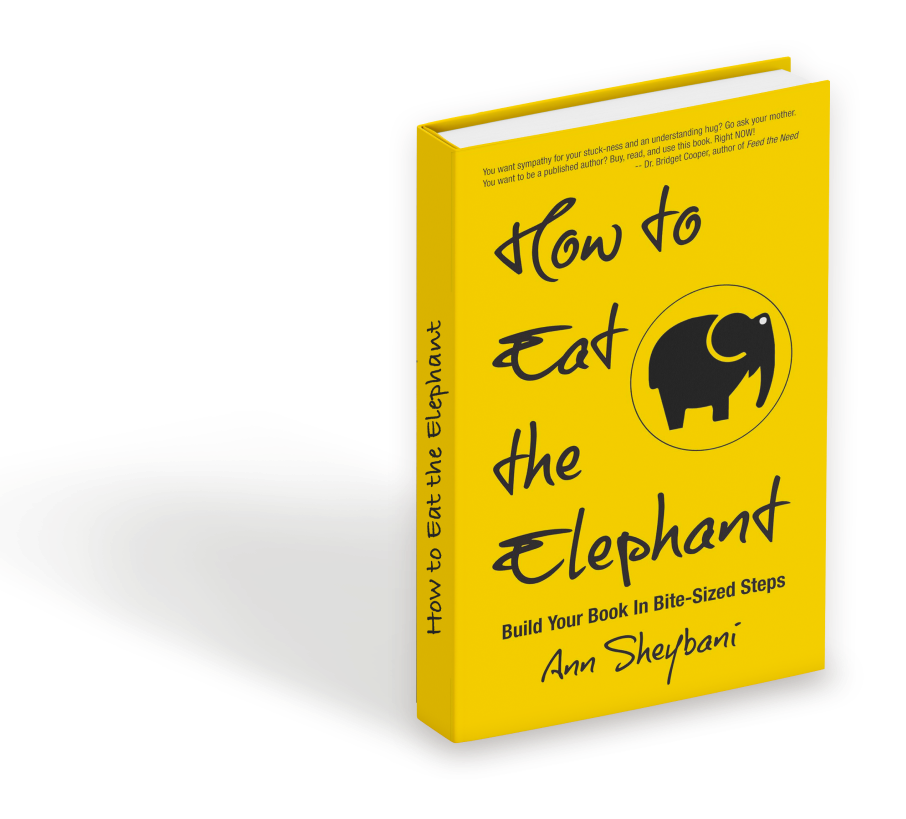You’ve probably talked for years about writing your book, the one that will inspire people to take massive action AND build your business. The one that will save readers time and pain AND establish you as a true authority. The one that will spell out your framework and clarify your mission and…yadda yadda. And yet….you’ve done very little if anything about it.
You probably forgo bringing up the topic anymore because your inertia is sort of embarrassing.
At least, that’s how many of my clients described their early journey to published author.
Maybe you’re convinced you’ve got good old-fashioned writer’s block, not because it’s en trend, but because there’s no other way to explain your lack of action. You know you want it—the impact, influence, clarity, reputation, authority, income—what could possibly be getting in the way?!
In other words, procrastination reigns supreme. It practically sits on a throne in the center of your home sucking up the oxygen.
To be fair, writer’s block exists, and it can be caused by several things.
Often a writer is trying too hard to stay linear—this happened first, then this, then this, or is it the other way around—so it’s easy to get stuck. Other times, the writer is simply guilty of editing in the field—deciding that something isn’t worth writing about, even before he gets the first word down.
But sometimes writers feel stymied because the whole writing process fails to live up to their fantasy, or they run smack dab into fear. That’s when nice people (dare I say, like you?) decide that the best course is to simply stop writing, or forgo starting in the first place, or find some awesome distraction that feels like a bigger priority.
And there the project—oh hell, IDEA—sits. It’s so dead it doesn’t even gasp for air.
The problem you may be experiencing—the one preventing you from starting or finishing the book you swore up and down you’d write—can be attributed to what Steven Pressfield, author of The Art of War, calls the Lizard of Resistance.
Here’s where he came up with the term…
The Lizard Brain is a metaphorical representation of the primitive, instinctual part of our brain that seeks to maintain the status quo and avoid change, risk, or discomfort. It’s the part of our psyche that often resists creative endeavors, personal growth, and any form of resistance that arises when we try to do meaningful work.
Pressfield uses the term “Resistance” to describe this force that hinders creative processes and personal development. The Lizard Brain, or Resistance, manifests as fear, self-doubt, procrastination, perfectionism, rationalization, and other negative behaviors and thoughts that prevent us from pursuing our creative passions or achieving our goals.
The Lizard of Resistance will show up during creative processes because:
- Resistance is a universal force that every creative person encounters. It’s not a personal failing or unique to certain individuals; it’s something we all must contend with when we embark on creative endeavors.
- The Lizard Brain tries to keep us in our comfort zones and prevent us from taking the risks necessary for creative growth. Its favorite tool is self-sabotage.
- Resistance often arises when we step into the unknown or start something new. The Lizard Brain fears uncertainty and change, so it activates to try to keep us in familiar, safe territory.
- Paradoxically, Resistance often shows up when we are about to embark on something important or meaningful. Pressfield suggests that the more Resistance we encounter, the more important the creative project is to us. Resistance is a compass pointing us toward our true calling.
Pressfield’s main message in The War of Art is that the only way to defeat Resistance is through action and discipline. By acknowledging its presence and consistently showing up to do the work, creative individuals can overcome the Lizard Brain and make progress on their projects. Professionals recognize Resistance but do their work regardless, while amateurs let Resistance stop them from pursuing their creative passions.
Knowing you will face The Lizard of Resistance when you decide to write a book, regardless of your base level of emotional stability, constitutes half the battle.
Getting clear on why you’re writing a book in the first place, which topic will best serve you and your reader, how you’ll use that book to create deeper relationships with your readers, then how you’re going to get it out into the world will also deflate the Lizard, long enough to keep your butt in the seat, feeling like you’re on to something good. Because that’s how you keep going.

